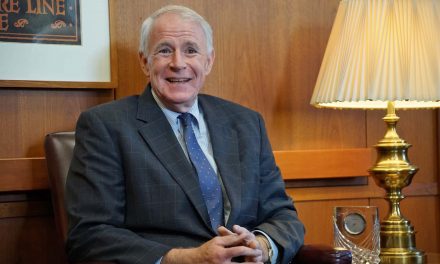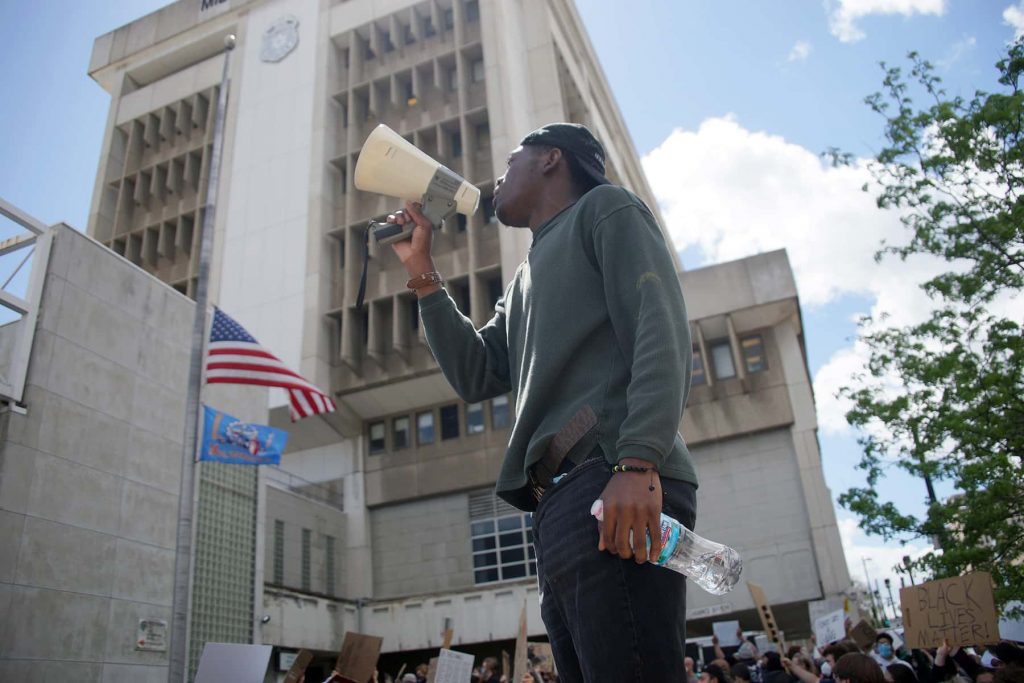
We are living in a time where it has become increasingly difficult to distinguish the believability of people. Social media is helping to foster a society of influencers, condoners, and amplifiers. It seems the more followership a person has, the more they are celebrated for their public persona. However, this public persona of success can actually mask a private misery.
Over my past twenty years of public service in Milwaukee, I have often found myself thinking about how suffering can both help and hurt people. Help in the manner that pain can create genuine bonds of connected empathy through vulnerability. However, hurt in the manner that the work can be driven by a detest rather than love, a bitterness rather than betterment, a fighting against rather than a fighting for.
When the filter of self is one of pain, then it is only logical that the lens of society can also become one of pain. No matter the self convincing, affirmations, or accolades; unprocessed pain can only be masked for so long until the discomfort of living this disingenuous life becomes too much and the person realizes that they must stop looking out of windows and start looking into the mirror.
We all know of people like this, who have struggled privately but are celebrated publicly. We have known of politicians, preachers, activists, leaders, entertainers, and icons who have neglected private and family responsibilities to emphasize the importance of their public obligations. Their behavior condoned by our society because they held a larger importance due to their particular cause, giving them the justification and ability to hide their private daemons.
Some of these celebrities and role models have experienced a recent fall from grace, however some are still very much revered. So it should really be no big surprise that we continue in this legacy today, and social media plays a huge role.
J Cole’s song, “False Prophets” goes on to describe the experience of idolizing a person based on fame and glory. While J. Cole may have been directing his message towards other entertainers, the overall messaging of the lyrics touches on a much broader reality we face today. In the first verse, Cole states, “Ego in charge of every move, he’s a star.” He goes on to describe our tendency to focus on superiority and rationalize the manipulation behind it.
In his second verse, Cole goes on to describe the obsessive behaviors that one takes to keep up a positive public persona, and the internal strife felt by living this conflicted lie. Finally, he ends the third verse by talking about himself, his own desires to attain glory, and why people need to see “the real God is in you, not the music you coppin,” meaning that we must realize the truth of internal self-worth much more than the explanations we provide ourselves.
Freud and other psychoanalytic theorists have spoken at length about this and particularly “reaction formation, a type of defense mechanism in which a person acts in the exact opposite manner to his own disturbing or socially unacceptable thoughts or emotions.” This means that individuals acts in a diametrically different manner then their true, deep down subconscious desires and motives.
Examples of this behavior could include; a person who is conditioned to think same-sex relationships are sinful but then secretly desires a person of the same sex, or a person who advocates for less privileged minority groups but intrinsically feeling that their own group is actually dominant, or a person who advertises themselves as a peaceful community orientated and healing person but may really crave gaining glory themselves and have much more a propensity for destruction, war, and revolt.
So why are people so willing to become something that they really don’t feel? Let’s go back to Cole’s lyrical genius and explore the “ego being in charge.” According to Freud, to deal with tensions and conflicts that arise within our personal lives, we employ ego defense mechanisms such as reaction formation, but others may include denial, repression, projection, and displacement.
Because we are all habitual, the way that we deal with struggle can become very patternistic. For example, if we grew up with a tendency to project then that pattern continues to be utilized well into our adulthood. Furthering the problematic behavior is that we attract the coping mechanisms we utilize. Fame seekers attract other fame seekers, blamers attract blamers and deniers attract other deniers, and so on. This happens at such a subconscious level, the original source of pain often remains and goes unchecked. The pain acts as the puppetmaster, making its subject prove over and over again that the individual has something worth praising.
We can imagine people who fits this description, and many of them are embedded in daily headlines. Whenever a person is celebrated in the public limelight for doing great work, I often wonder how this person is like in real life. Does their nearest and dearest love and respect them like the community does? Do they act the same way when no one is watching? Why do they do what they do in public spaces?
In my experience, I have seen too many people become “lights, camera, action” people, while ignoring the darker hidden daemons until it becomes too late. By too late, I mean until they have no audience and have to take a good long look in the mirror and come to grips about the source of their loneliness; their own feelings of inferiority and the shame that comes with not being honest.
To a certain degree, we all have engaged in compensating tactics for our damaged self and wounded ego. Being courageous and comfortable with our hurt sense of self will make it easier to clearly see it in others. However, the effort is often uncomfortable. This is because it is like looking at the worst part of ourselves without the spiritual language to express how uneasy the facade makes us when we know the truth.
Our journey to a more honest self continues, and our journey to a more honest society continues. As we reveal, we feel; and as we feel, we heal. I have been lucky to have great shepherds on my journey, and I share this is in love and gratitude to all those that have guided me to a more healthy and honest self.














